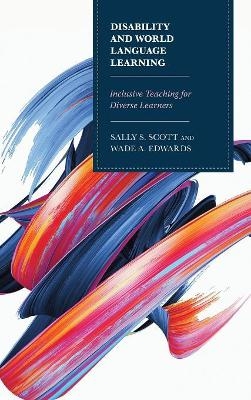
Disability and World Language Learning
Rowman & Littlefield (Verlag)
978-1-4758-3704-9 (ISBN)
The release of a report by the Modern Language Association, “Foreign Languages and Higher Education: New Structures for a Changed World,” focused renewed attention on college foreign language instruction at the introductory level. Frequently, the report finds, these beginning courses are taught by part-time and untenured instructors, many of whom remain on the fringes of the department, with little access to ongoing support, pedagogical training, or faculty development. When students with sensory, cognitive or physical disabilities are introduced to this environment, the results can be frustrating for both the student (who may benefit from specific instructional strategies or accommodations) and the instructor (who may be ill-equipped to provide inclusive instruction).
Soon after the MLA report was published, the American Council on the Teaching of Foreign Languages issued “Diversity and Inclusion in Language Programs,” a position statement highlighting the value of inclusive classrooms that support diverse perspectives and learning needs. That statement specifies that all students, regardless of background, should have ample access to language instruction. Meanwhile, in the wake of these two publications, the number of college students with disabilities continues to increase, as has the number of world language courses taught by graduate teaching assistants and contingent faculty.
Disability and World Language Learning begins at the intersection of these two growing concerns: for the diverse learner and for the world language instructor. Devoted to practical classroom strategies based on Universal Design for Instruction, it serves as a timely and valuable resource for all college instructors—adjunct faculty, long-time instructors, and graduate assistants alike—confronting a changing and diversifying world language classroom.
Sally S. Scott is Senior Research Associate for the Association on Higher Education and Disability (AHEAD). She holds a doctorate from the University of Virginia and has over 25 years’ experience working with adolescents and young adults with a wide range of disabilities. She has published and presented nationally and internationally on issues related to inclusive teaching, college support services, and emerging disability populations. A former department chair and modern languages program coordinator, Wade Edwards is a professor of French and Associate Dean of the Cook-Cole College of Arts & Sciences at Longwood University in Virginia. His scholarship has appeared in Nineteenth-Century French Studies, Feminist Teacher, and the NECTFL Review, among other publications. He has been teaching French to students at a variety of public universities for 25 years.
List of Tables
Forward
Preface
Acknowledgements
Introduction
Chapter 1: Disability, Student Diversity, and Inclusive Teaching
Chapter 2: Setting the Stage for an Inclusive Language Learning Classroom
Chapter 3: In the Classroom
Chapter 4: Assessment of Student Learning
Chapter 5: Getting Started
Chapter 6: Conclusions
References
About the Authors
| Erscheinungsdatum | 13.11.2018 |
|---|---|
| Verlagsort | Lanham, MD |
| Sprache | englisch |
| Maße | 160 x 231 mm |
| Gewicht | 349 g |
| Themenwelt | Geisteswissenschaften ► Sprach- / Literaturwissenschaft ► Sprachwissenschaft |
| Sozialwissenschaften ► Pädagogik ► Didaktik | |
| Sozialwissenschaften ► Pädagogik ► Sonder-, Heil- und Förderpädagogik | |
| ISBN-10 | 1-4758-3704-6 / 1475837046 |
| ISBN-13 | 978-1-4758-3704-9 / 9781475837049 |
| Zustand | Neuware |
| Haben Sie eine Frage zum Produkt? |
aus dem Bereich


